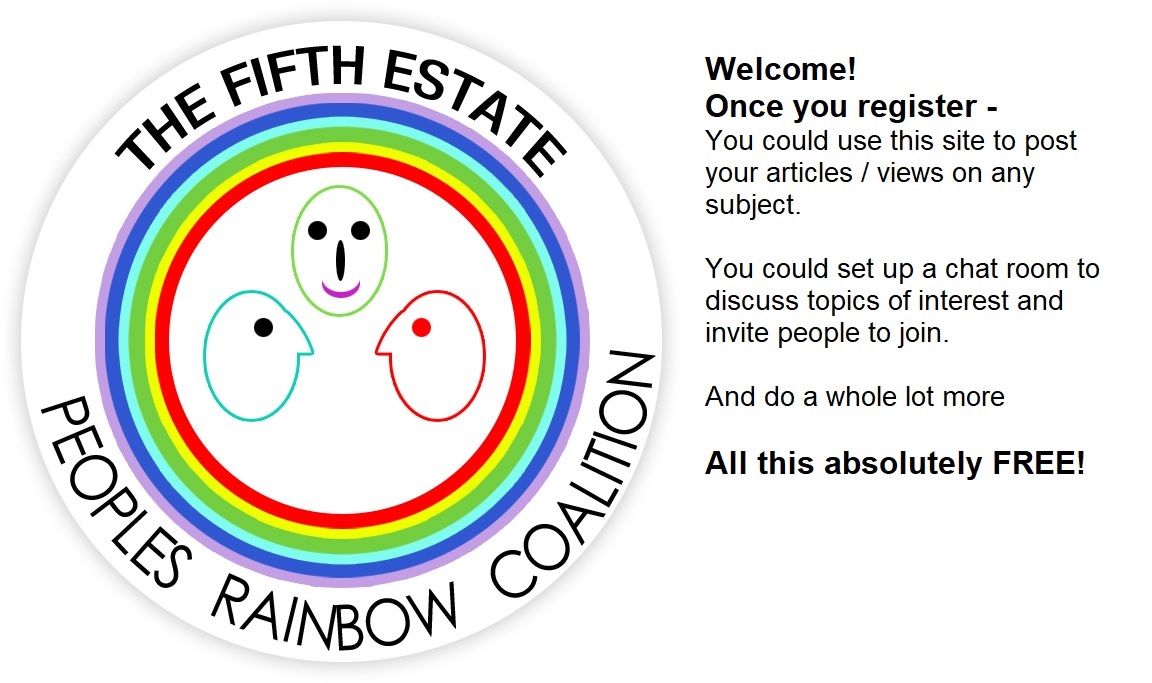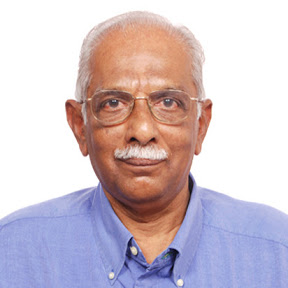The Campaign Explained
NO2UID and NO2NPR are the focus of our campaign. It is run by a number of organisations, of which ‘The Fifth Estate’ is one. We stand for a form of good governance that is people-centric, a true form of ‘Government of the people, by the people and for the people’. Politicians and bureaucrats in government use the fear of terrorism or war to set up databases with personal data of people. The databases pose the gravest threat to liberty and privacy. Databases with personal data enable governments to manipulate and control people. People must fight the creation of such databases by uniting against those who advocate and / or create them. "ID cards", “UID”(Unique Identity), “Aadhaar”, “MNIC” are visible manifestations of the database state, although camouflaged as items of convenience and utility to the public. The rapid growth of the database state has been promoted through inducements and subtle methods of playing on the public’s fear of the unknown. Thus for example, the statement, “Aadhaar is voluntary, but it could become ubiquitous and service-providers could ask for it”, is intended to convey that failure to register for Aadhaar could lead to denial of service later. ‘Free market’ methodologies too are used by the promoters of the Database State. The branding of UID as, “Aadhaar” is a visible example of the use of marketing tools to induce people into accepting the database state organs. “Aadhaar”, which in Hindi means, “Foundation”, is used to promote the government’s demographic database of unique IDs – UID. As the brand name implies, the database would be foundation for everything the government would, for all its programs.
This campaign is managed in an entirely independently. We do not endorse any political party or ideology. While ‘The Fifth Estate’ has other campaigns and programs, the ‘SAY NO 2 UID's' campaign is focused on UID and NPR. This campaign would not deal with any other topic. Hence, those who wish to join this campaign need not have any hesitation about being mistaken as part of other campaigns of this website. Our objective is to publicise the case against state control of personal identity among the public, in the media, and at every level in government. NO2ID's members could be from all sorts of backgrounds. They may hold all sorts of opinions on other issues. They almost certainly include people much like you. Please support us. Why NO2UID must carry on UID seems to be in doldrums, after the verdict of the Parliament Standing Committee on Finance. The infrastructure UIDAI set up survives. UIDAI and its bureaucrats seem unmindful of the Parliament Committee’s report. One is understood to have claimed that since, the UIDAI chairperson is rich and powerful, UID would happen, irrespective of Parliament or any other force. These bureaucrats must be taught that the people’s will is supreme in democracies. There is an attempt to use the UIDAI data for NPR. Although the Citizenship Act does not provide for biometric information, NPR seems to going in for biometrics. Mass surveillance continues. Large numbers of CCTVs are to be procured and installed. Politicians would like to police the Internet. One cabinet minister came out with such a proposal. He has beaten a hasty retreat in the face of public opposition. However, the likes of him are certain to stage a comeback. Surveillance and phone-tapping devices are being imported in huge quantities. The IT Act has been amended to provide for routine interception without judicial scrutiny. Official demands for personal information are multiplying. · At every tool booth, your car or motorbike’s number plate is read by a network of cameras and that record of movements passed to a central store. · Leave or enter the country and all travel details you give will be put on a database that is available to dozens of Indian and foreign agencies. Private companies employing contract labor are the ones that capture your data. There is no law to regulate or punish abuse of the data. Laws for such regulation would be ineffective. How could the agency or employee who passed on the information be identified? · Visit the doctor and the details may be captured. A hospital chain expressed its interest in cooperating with UIDAI to set up a database for sharing of medical records, expanding the role of the existing Health and Social Care Information Centre. · Monitoring of telephone and internet use continues to increase; all 'traffic data' is now to be maintained for a certain period for inspection, by law. · Public service agencies and utilities are collecting personal information routinely, even if the information is not needed for them to provide the service. For example, banks are asking for information on vehicle ownership and other assets in account-opening forms. Government departments have sought to set up databases to share the information they have about you, on fine-sounding pretexts. E-Governance is the mantra that is used to make such databases alluring and palatable. Please help us now The dangers of "the database state" commenced way back in 2004, when the Citizenship Act was amended to provide for setting up a National Population Register and compulsory registration on pain of penalties, including imprisonment for failure to register. Most people are ignorant of its dangers. In a culture where “Mai-Baap Sarkar” is the norm, the public accept anything that the governments do without question. Only a few organisations, largely individuals are specifically dedicated to tackling the menace of the database state. Some people think it is all over. But privacy needs defending more than ever. We will resist through all democratic means available to us under the Constitution, these and other dangerous new schemes. We shall press for positive changes. We shall ask for protections in law for privacy that are available to everyone, the right to control your own personal information, entitlement to compensation if your privacy is abused, judicial oversight prior to state surveillance and protection against tapping phones or interception of Internet records, without judicial sanction. We have made some progress in the last two years. We would like to and are able do more. We need your help. If you think, your personal information is yours alone and that it is worth fighting to protect it, then please support us.
What is the Database State?

This picture is from the NO2ID website of UK. We acknowledge their leadership. We would follow their successful campaign methods. The picture shows tattooed bar codes on people’s forearms. The database state would brand people like the slaves and cattle of earlier periods. The 'database state' is the attempt to use computers to manage society by monitoring people and their activities. There are many interconnected government plans that do this. Together they mean that government officials would be prying into your private and personal life more than ever before. The list of database state initiatives on which NO2UID is campaigning, along with a wide range of other organisations, would be available on this site. There was a lot of confusion about the government's proposed UID Scheme. For long, no one knew whether it was to be a card or a number in a database. Even now, one is not sure. UIDAI and government deliberately allowed to the confusion to continue. Both often gave misleading information. You would find an outline of the scheme here. We have compiled answers to some
Frequently Asked Questions (FAQs).















